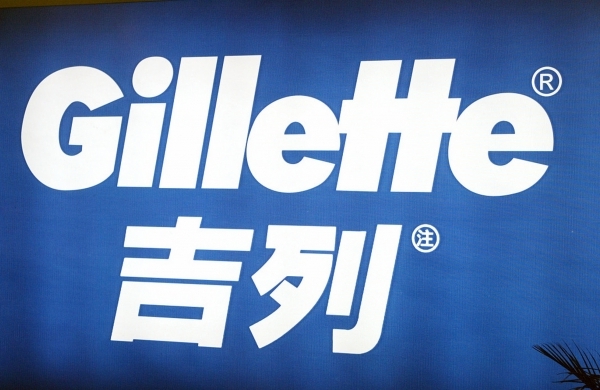Did not receive verification mail? Please confirm whether the mailbox is correct or not Re send mail

IPR Daily
- 2022-04-29 22:54:25
Wild and Untamed Trademarks: Madrid Protocol Grants Right of Priority as of Constructive Use Date
Addressing for the first time the question of enforceability of a priority of right in a trademark granted pursuant to the Madrid Protocol where the registrant’s actual use in commerce began after the allegedly infringing use, the US Court of Appeals for the Ninth Circuit found that the Madrid Protocol grants priority as of the constructive use date, but to prevail on an infringement action based on that superior right of priority, the registrant must still establish the requisite likelihood of confusion under the Lanham Act. Lodestar Anstalt v. Bacardi & Co., Case No. 19-55864 (9th Cir. Apr. 21, 2022) (Baldock, Berzon, Collins, JJ.)
Under the Madrid Protocol, applicants with trademarks in another country may obtain an "extension of protection" (generally equivalent to trademark registration) in the United States without needing to first use the mark in US commerce. Instead, the grant may be based on an applicant's declaration of bona fide intent to use its mark in the United States.
In 2000 and 2001, Lichtenstein-based company Lodestar developed a brand of Irish whiskey called "The Wild Geese," which was marketed in the US as "The Wild Geese Soldiers & Heroes." Around 2008 and 2009, Lodestar developed the idea for the "Untamed" word marks, and in 2009 the US Patent & Trademark Office (PTO) accepted for filing two applications on behalf of Lodestar seeking extension of protection under the Madrid Protocol for the internationally registered "Untamed" word marks. The PTO published the marks for opposition, then granted the extensions of protection in 2011. In 2013, Lodestar developed a rum under The Wild Geese Soldiers and Heroes brand that used the Untamed word mark on the label. The rum was shown at the April 2013 Rum Renaissance Trade Show in Florida, where consumers sampled the rum. The rum was also featured in print advertisements associated with the trade show. But by June 2013, Lodestar had "decided to park the USA rum project as [it was] getting better returns in other markets."
In 2012, Bacardi began developing the ad campaign "Bacardi Untameable." Before launching the campaign, Bacardi ran a trademark clearance search that turned up Lodestar’s "Untamed" trademarks. From 2013 to 2017, Bacardi ran its "Bacardi Untameable" campaign. In response, Lodestar began promoting a then-nonexistent product "Untamed Revolutionary Rum" in an effort "to complement the Wild Geese Rum and also to combat Bacardi’s attempts to take over our Untamed mark." In January 2015, the first Untamed Revolutionary Rum was sold to US retailers. In August 2016, Lodestar sued Bacardi for trademark infringement, arguing injury based on reverse confusion, as well as associated claims for unfair competition. The district court granted summary judgment in favor of Bacardi. Lodestar appealed.
The Ninth Circuit found that the district court erred on the threshold question of whether Lodestar’s Revolutionary Rum should be considered in the analysis of likelihood of confusion. The district court had found that the relevant products were those existing prior to launch of Bacardi’s campaign (excluding the later-created Revolutionary Rum). The Court found that conclusion erroneous because Lodestar’s post-2013 bona fide use of the Untamed word mark, coupled with its earlier "constructive use" date afforded under the Madrid Protocol, gave Lodestar priority of rights dating back to 2009. The Court explained that this conclusion flowed from Title XII of the Lanham Act, which was added by Congress to implement the Madrid Protocol.
The Ninth Circuit found that while a categorical temporal rule was erroneous, it was ultimately appropriate to exclude the Revolutionary Rum from the likelihood-of-confusion analysis on the basis that "the Lanham Act generally limits enforceable trademark rights to bona fide uses that reflect genuine commercial endeavors rather than merely efforts to retain rights in a mark." Because Lodestar's efforts with Revolutionary Rum did not reflect a continuing effort or intent beyond token use merely to reserve rights in the mark and did not establish sales activity reflecting "genuine commercial purposes," the Court found that its exclusion was proper.
The Ninth Circuit affirmed the ruling that Lodestar's claims under the Lanham Act failed as a matter of law because the record confirmed that no reasonable trier of fact could find that confusion was "probable," not merely "possible."
Source: jdsupra.com
Editor: IPR Daily-selly
- I also said the two sentence
- Also you can enter 140words
 Chang Tsi Secures Victory for Gillette in Trade Dress Protection Lawsuit
Chang Tsi Secures Victory for Gillette in Trade Dress Protection Lawsuit Government Signals Potential Shift Toward Preliminary Injunctions in Patent Infringement Cases
Government Signals Potential Shift Toward Preliminary Injunctions in Patent Infringement Cases District Court Issues AI Fair Use Decision: Using Copyrighted Works To Train AI Models Is Fair Use, but Using “Pirated” Copies To Build a Central Library Is Not
District Court Issues AI Fair Use Decision: Using Copyrighted Works To Train AI Models Is Fair Use, but Using “Pirated” Copies To Build a Central Library Is Not Patent Case Summaries | Week Ending June 13, 2025
Patent Case Summaries | Week Ending June 13, 2025


